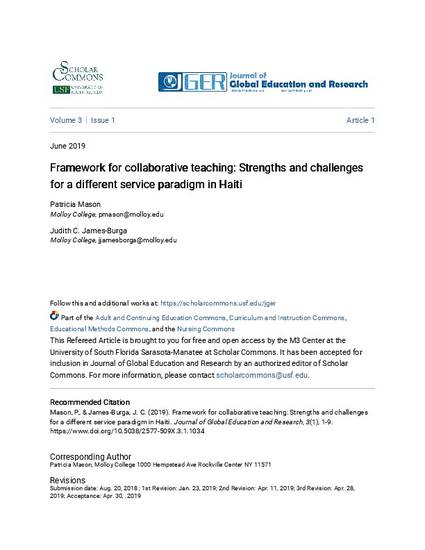
Nursing education in Haiti is in transition. This article describes the teaching/learning experiences of participants in a nursing educational project in Haiti. The project was guided by an integrative framework of the educational collaborative model, constructivism and situated learning theory. Reflections on the experiences lead to the realization of these four lessons: (a) the service provided must supplement, not negate the values and strengths of the host community; (b) it is important to provide sustainable service; (c) methods used by international educators must be respectful and relevant; and (d) international educators must be willing to engage in the identification and application of new and different strategies. This resulted in a paradigm shift which highlighted teaching as a mode of service delivery. The experience revealed service as the mutual giving and receiving of resources and expertise.
Visit the Journal of Global Education and Research at https://scholarcommons.usf.edu/jger/